Complete Solutions to Type 2 of chapter KINEMATICS, FORCES of Class 12 book with complete answers and questions
| Class 12 | PHYSICS |
| Chapter | KINEMATICS, FORCES |
| D MUKHERJEE | Type 2 |
| Number Of Questions | 22 |
| Academic Year | 2023-24 |
An observer moves with a constant speed along the line joining two stationary objects. He will obserbe that the two objects
View SolutionWhich of the following statements are true for a moving body ?
View SolutionLet v and a denote the velocity and acceleration respectively of a body.
View SolutionLet `vec(v)` and `vec(a)` denote the velocity and acceleration respectively of a body in one-dimensional motion.
View SolutionThe figure shows the velocity (v) of a particle ploted against time (t).
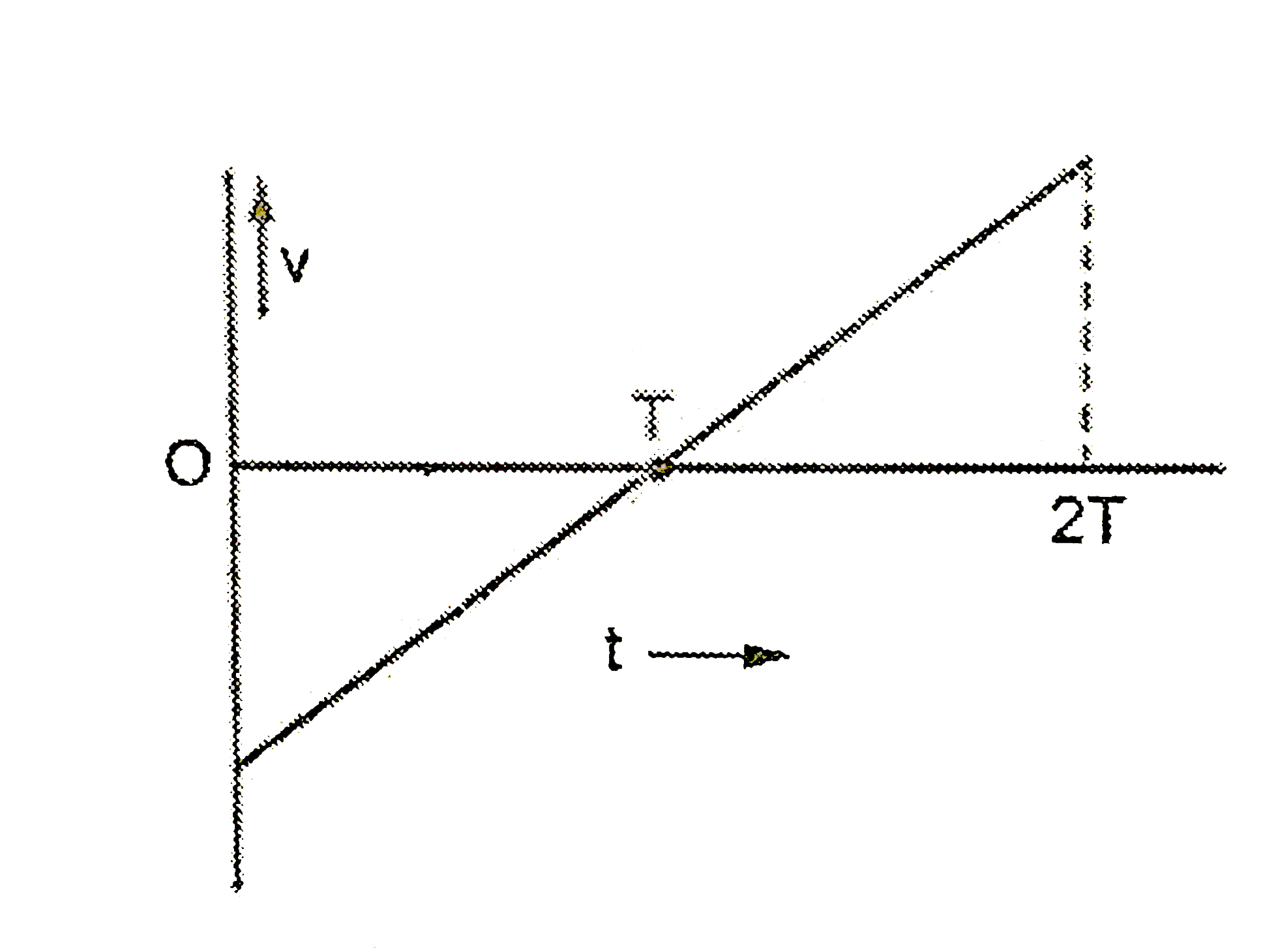
View SolutionA particle of mass `m` moves on the ` x- axis ` as follows : it starts from rest at ` t = 0`, from the point `x = 0`, and comes to rest at ` t = l` at the point `x = 1`. No other information is available about its motion at intermediate times `( 0 lt t lt l)` . If `alpha ` denotes the instantaneous accelartion of the particle , then :
View SolutionThe displacement (x) of particle depends on time (t) as
`x = alpha t^(2) - beta t^(3)`.
View SolutionA particle moves with an intial velocity `v_(0)` and retardation `alphav`, where v is its velocity at any time t.
View SolutionA particle starts from the origin of coordinates at time `t = 0` and moves in the xy plane with a constant acceleration `alpha` in the y-direction. Its equation of motion is `y = beta x^(2)`. Its velocity component in the x-directon is
View SolutionIn the figure, the pulley P moves to the right with a constant speed u. The downward speed of A is `v_(A)`, and the speed of B to the right is `v_(B)`.
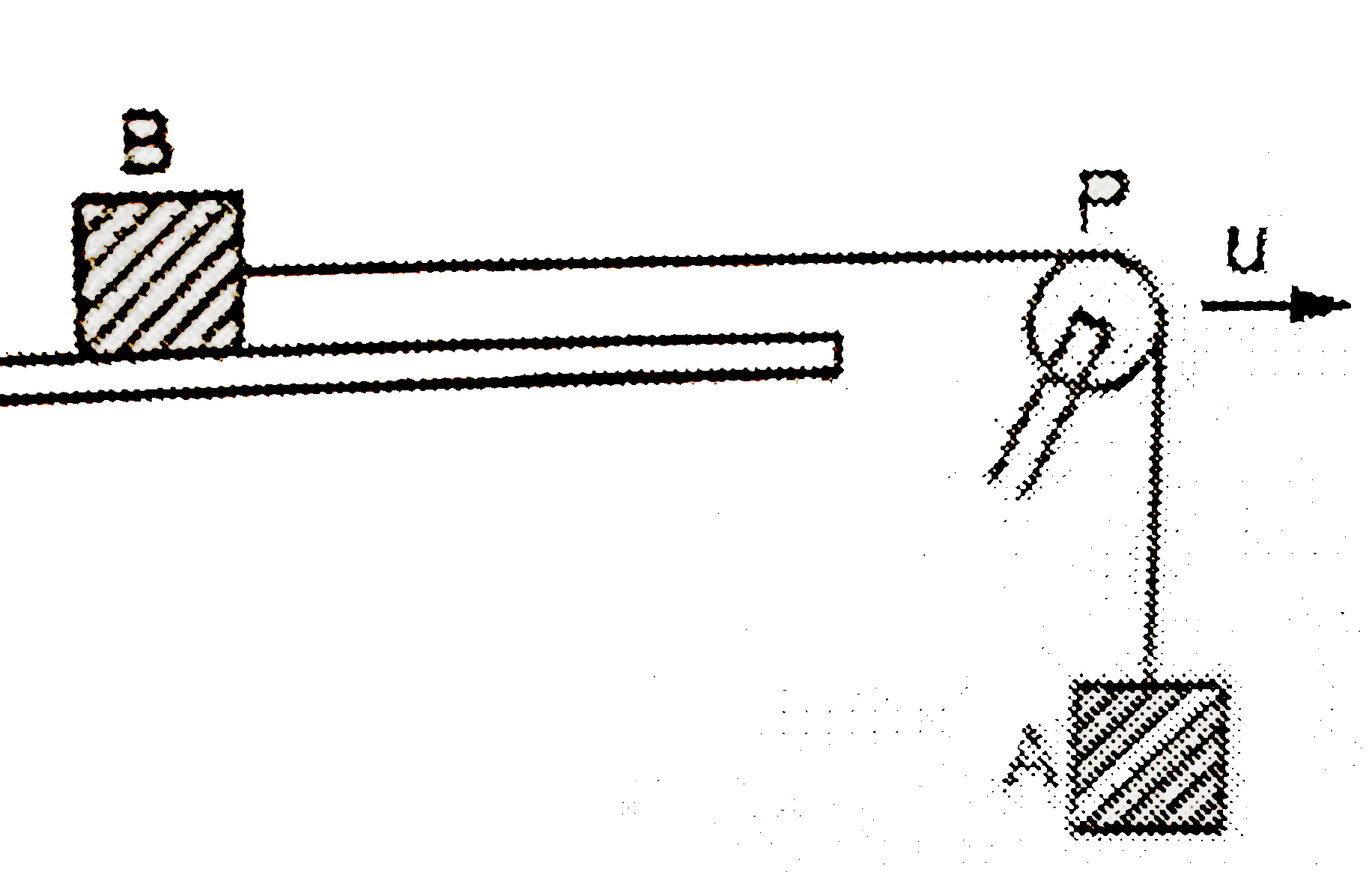
View Solution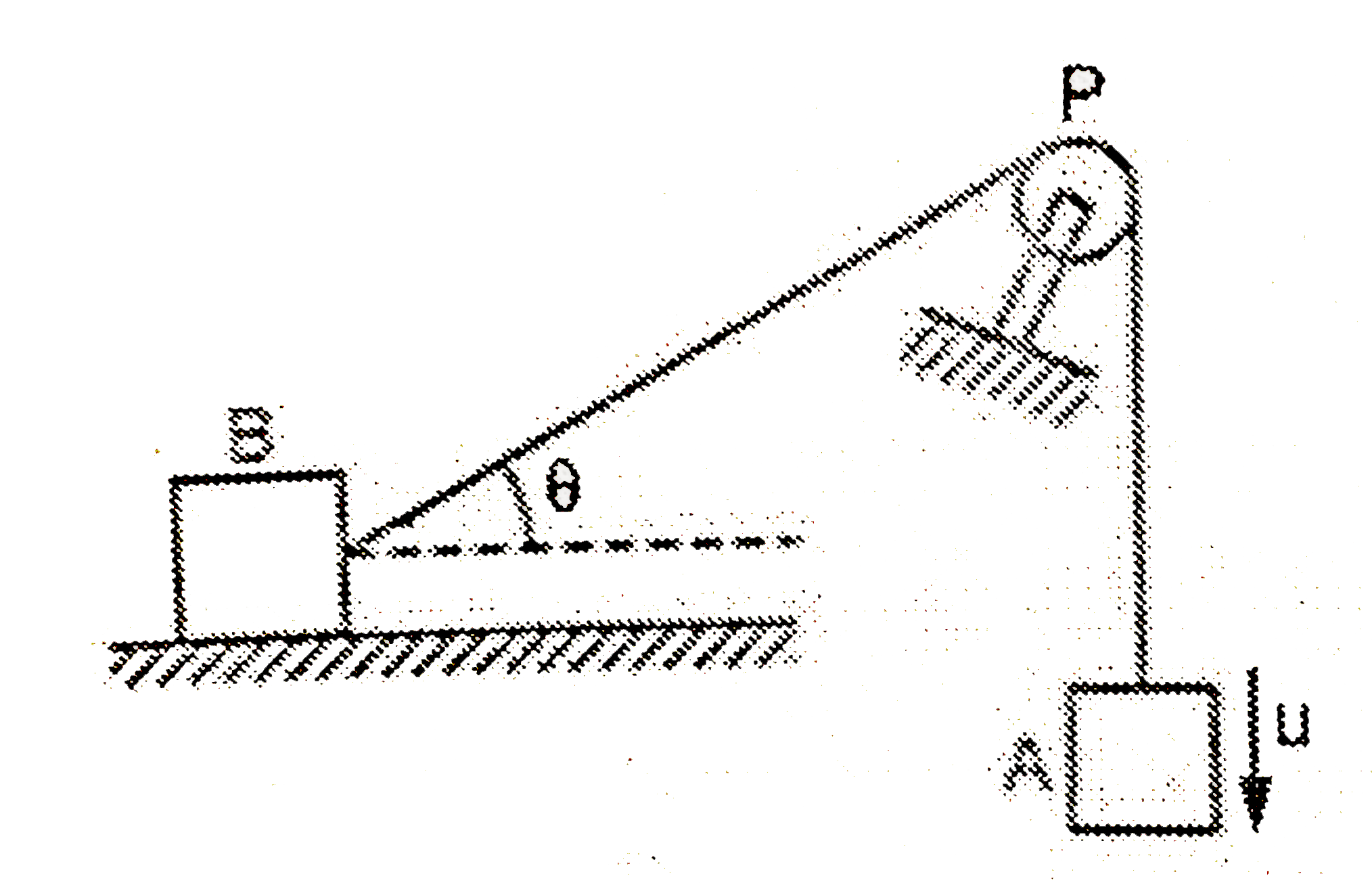
In the figure, the blocks are of equal mass. The pulley is fixed. In the position shown, A moves down with a speed u, and `v_(B) =` the speed of B.
View SolutionTwo paricles A and B start simultaneously from the same point and move in a horizontal plane. A has an initial velocity `u_(1)` due east and acceleration `a_(1)` due north. B has an intial velocity `u_(2)` due north and acceleration `a_(2)` due east.
View SolutionTwo particles are projected from the same point with the same speed at different angles `theta_(1)` and `theta_(2)` to the horizontal. If their respective times of flights are `T_(1)` and `T_(2)` and horizontal ranges are same then
a) `theta_(1)+theta_(2)=90^(@)` ,
b)`T_(1) =T_(2)tan theta_(1)`
c.`T_(1) =T_(2)tan theta_(2)` ,
d) `T_(1)sin theta_(2)=T_(2)sin theta_(1)`
View SolutionA cart moves with a constant speed along a horizontal circular path. From the cart, a particle is thrown up vertically with respect to the cart.
View SolutionA man on a moving cart, facing the direction of motion, thrown a ball staright up with respect to himself.
View SolutionA small ball is connected to a block by a light string of length l. Both are initially on the ground. There is sufficient friction on the ground to prevent the block from slipping. The ball is projected vertically up with a velocity u, where `2gl lt u^(2) lt 3gl`. The centre of mass of the block + ball' system is C.
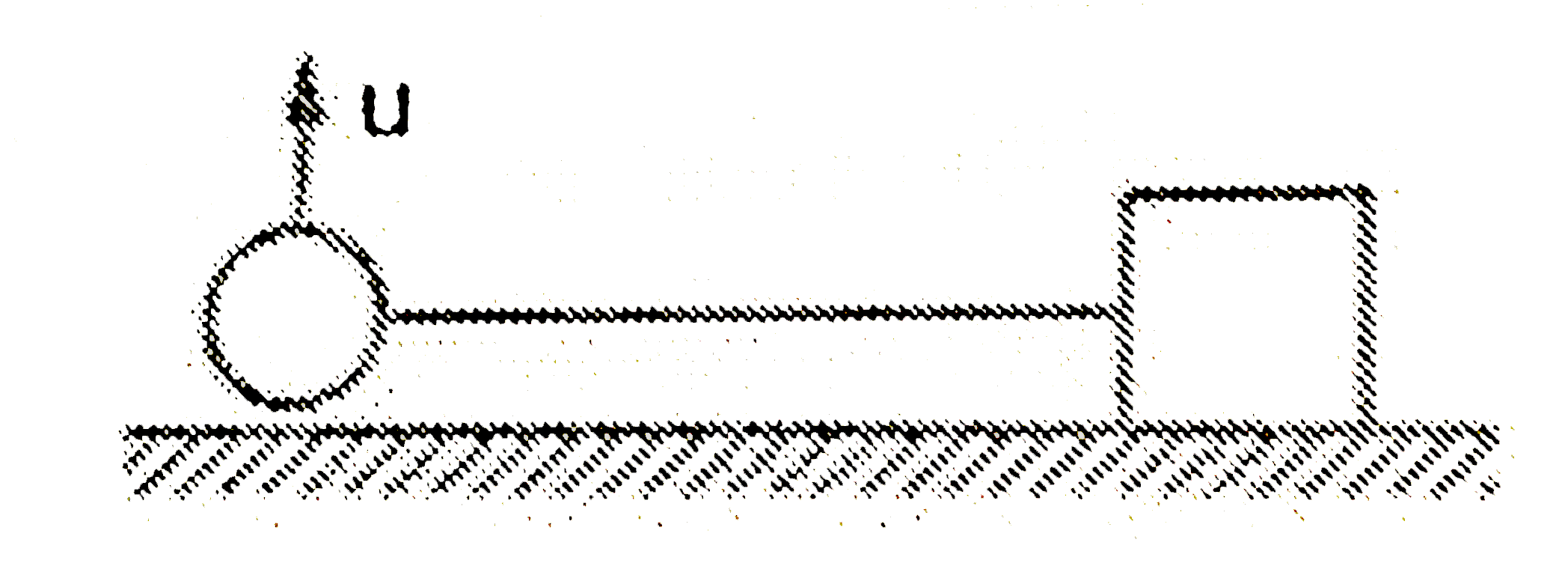
View Solution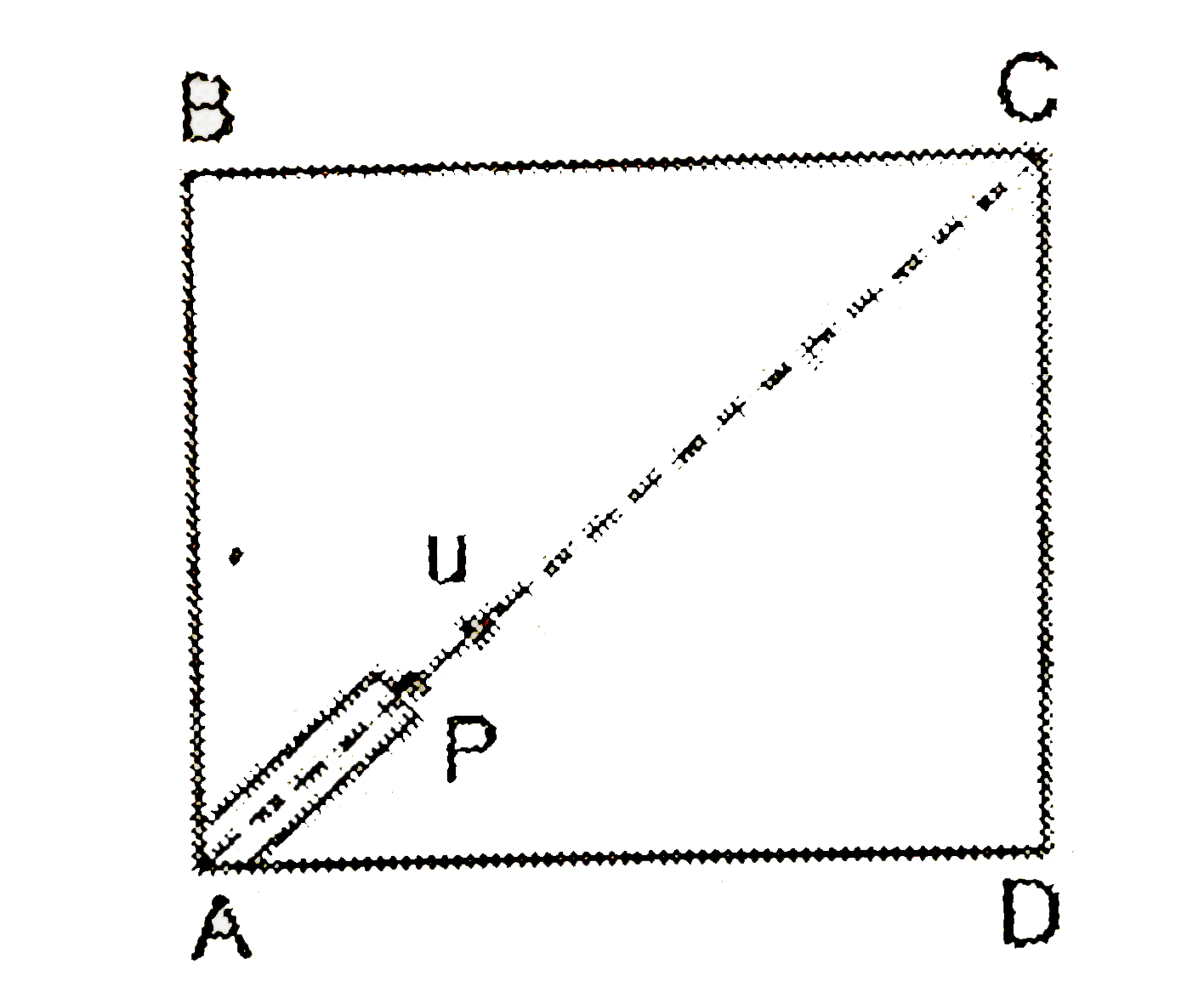
A large rectangular box ABCD falls vertically with an acceleration a. a toy gun fixed at A and aimed towards C fired a particle P.
View Solution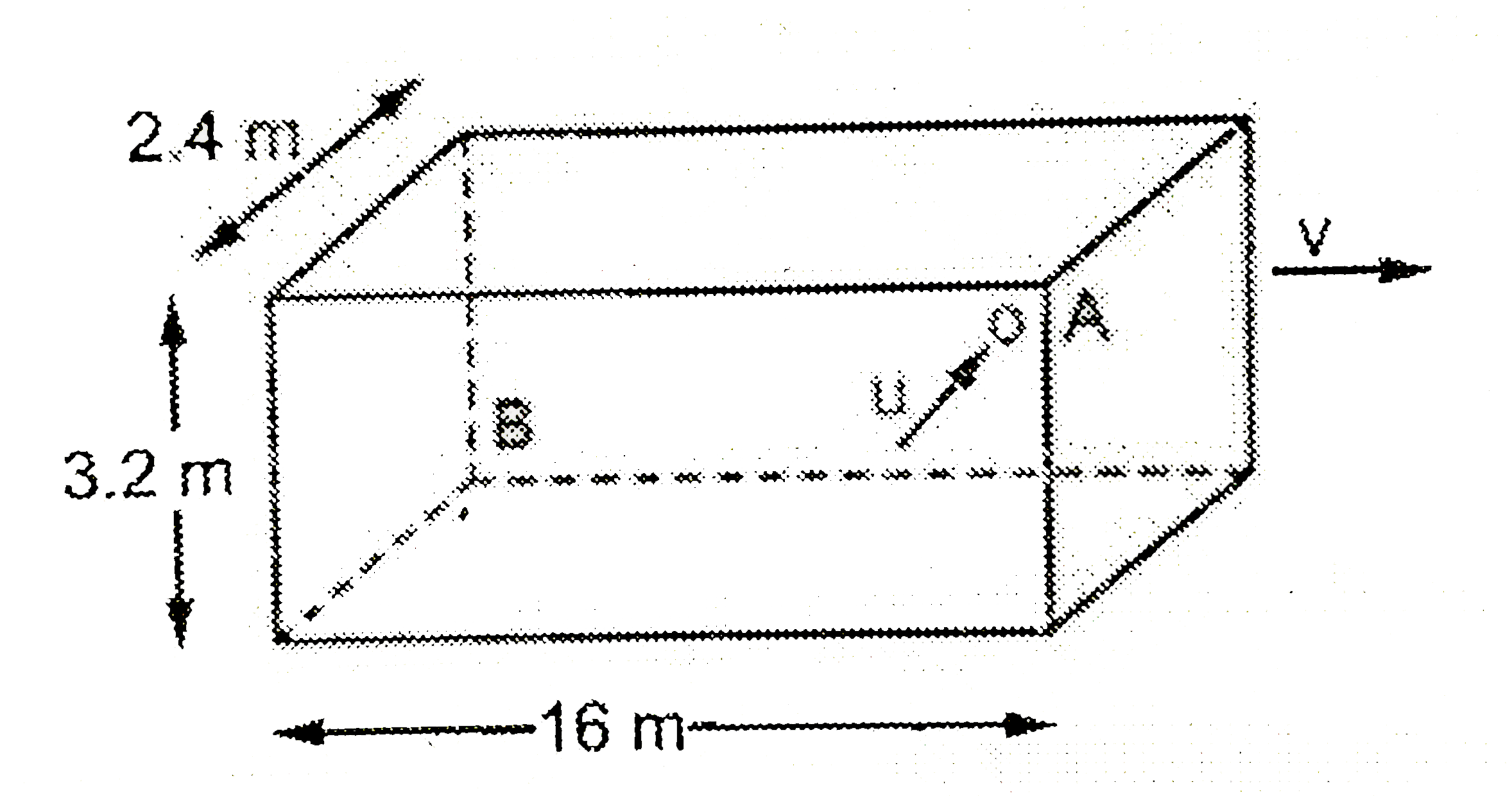
A railway compartment is 16m long, 2.4 m wide and 3.2 m high. It is moving with a velocity v. A particle moving horizontally with a speed u, perpendicular to the direction of v, enters through a hole at an upper corner A and strikes the diagonally opposite corner B. Assume `g = 10 m//s^(2)`.
View Solution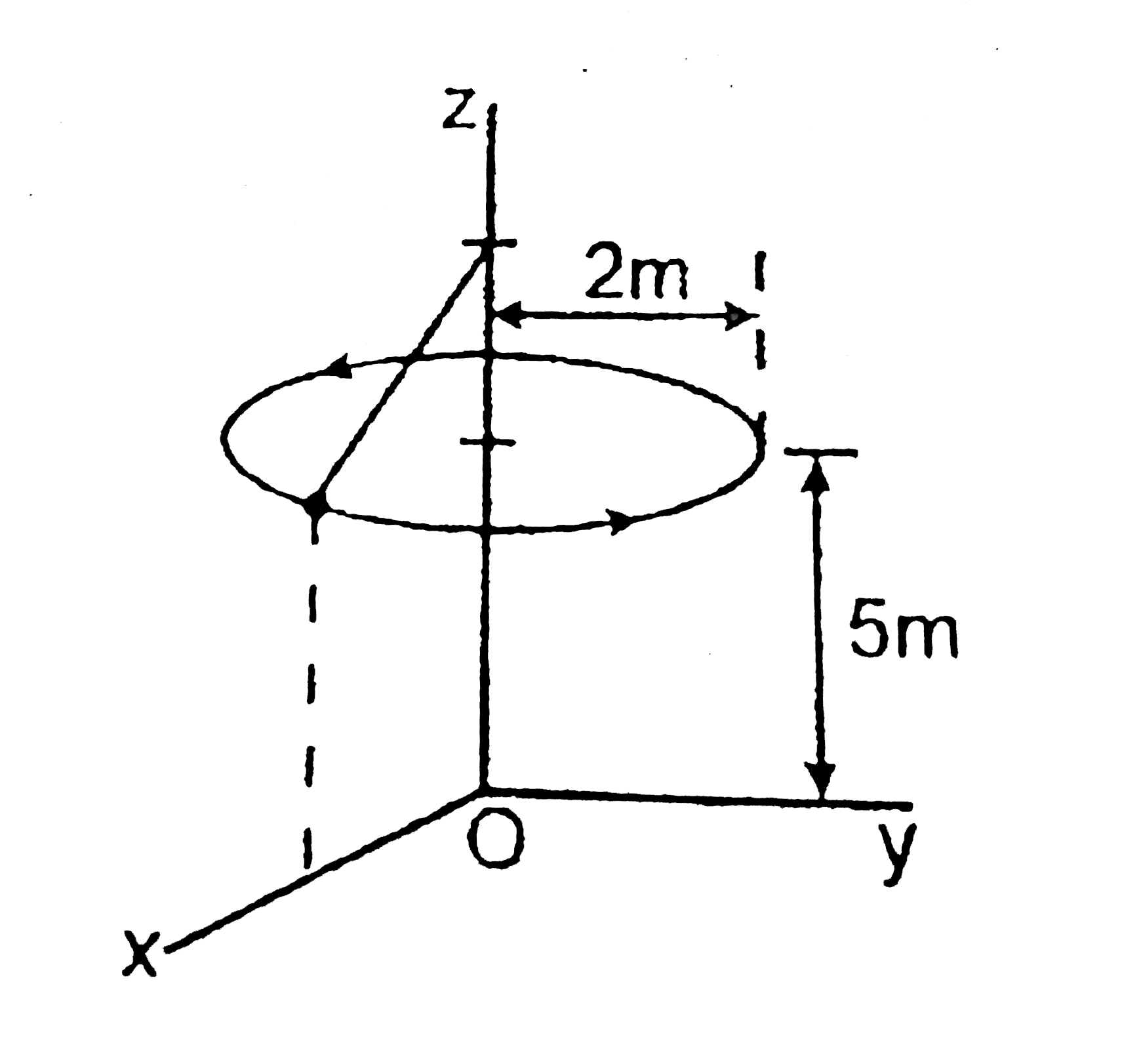
The upper end of the string of a simple pendulum is fixed to a vertical z-axis and set in motion such that the bob moves along a horizontal circular path of radius 2 m. parallel to the xy plane, 5 m above te origin. The bob has a speed of `3m//s`. the string breaks when the bob is vertically above the x-axis and it lands on the xy plane at a point (x,y)
View SolutionTwo shells are fired from a cannot with a speed u each, at angles of `alpha` and `beta` respectively to the horizontal. The time interval between the shots is T. they collide in mid-air after time t from the first shot. Which of the following conditions must be satisfied ?
View SolutionA man who can swim at a speed v relative to the water wants to cross a river of width d, flowing with a speed u. The point opposite him across the river is P.
View Solution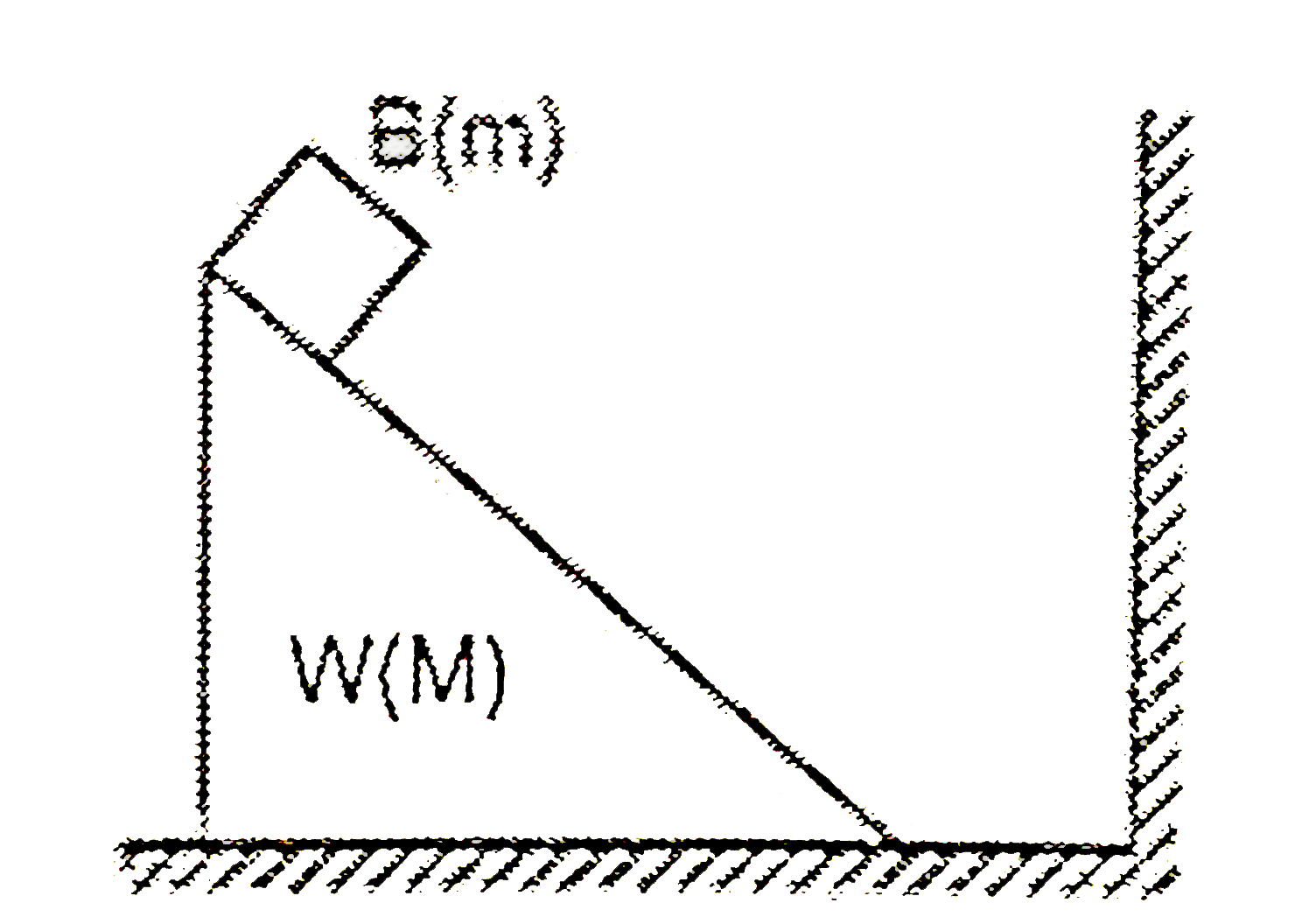
In the figure, the block B of mass m starts from rest at the top of a wedge W of mass M. All surfaces are without friction. W can slide on the ground. B slides down onto the ground, moves along it with a speed v, has an elastic collision with the wall, and climbs back two W.
View Solution
Type 2 questions and complete solutions for chapter KINEMATICS, FORCES of D MUKHERJEE PHYSICS (HINGLISH) of Class 12